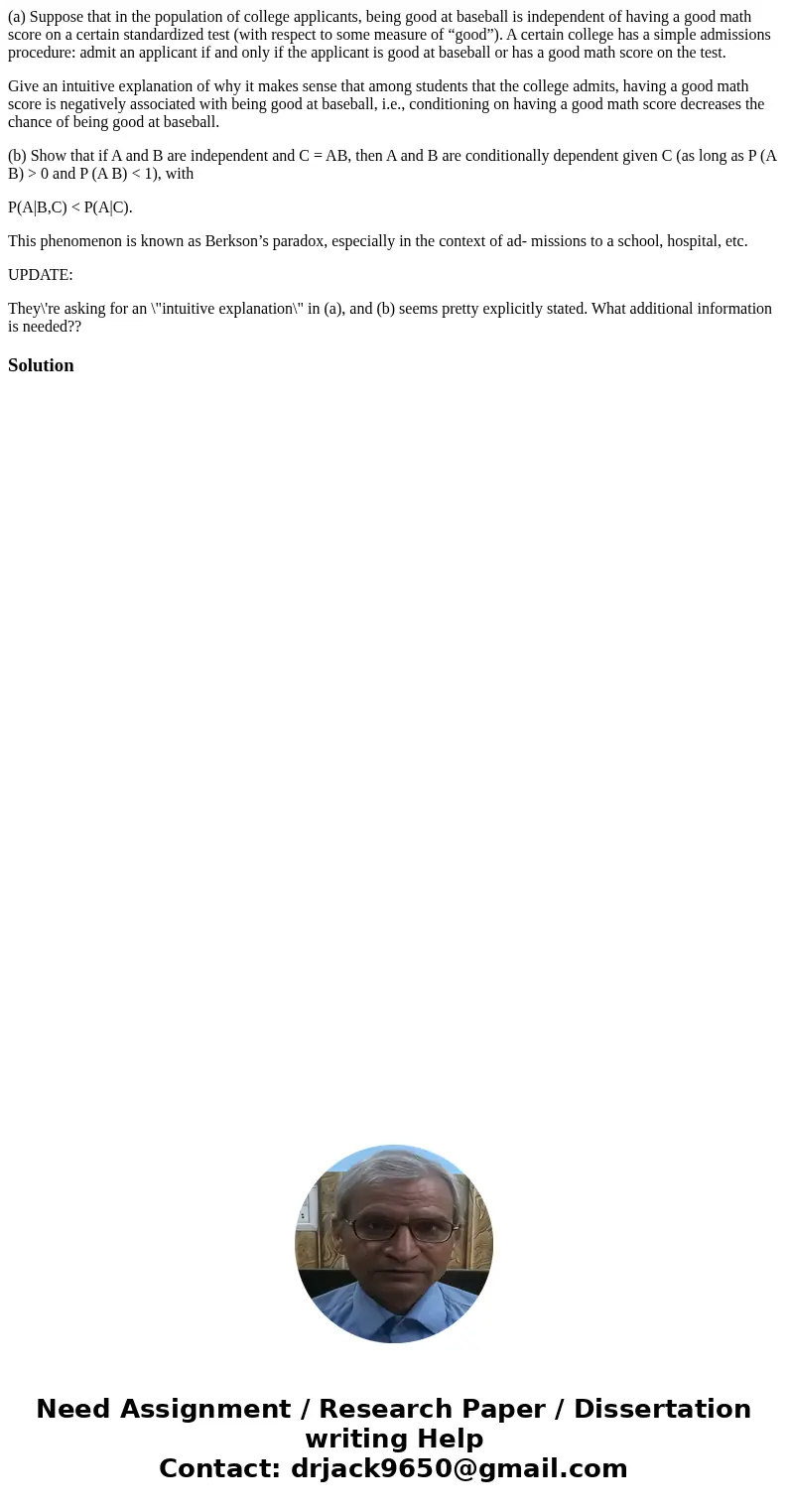a Suppose that in the population of college applicants being
(a) Suppose that in the population of college applicants, being good at baseball is independent of having a good math score on a certain standardized test (with respect to some measure of “good”). A certain college has a simple admissions procedure: admit an applicant if and only if the applicant is good at baseball or has a good math score on the test.
Give an intuitive explanation of why it makes sense that among students that the college admits, having a good math score is negatively associated with being good at baseball, i.e., conditioning on having a good math score decreases the chance of being good at baseball.
(b) Show that if A and B are independent and C = AB, then A and B are conditionally dependent given C (as long as P (A B) > 0 and P (A B) < 1), with
P(A|B,C) < P(A|C).
This phenomenon is known as Berkson’s paradox, especially in the context of ad- missions to a school, hospital, etc.
UPDATE:
They\'re asking for an \"intuitive explanation\" in (a), and (b) seems pretty explicitly stated. What additional information is needed??
Solution

 Homework Sourse
Homework Sourse